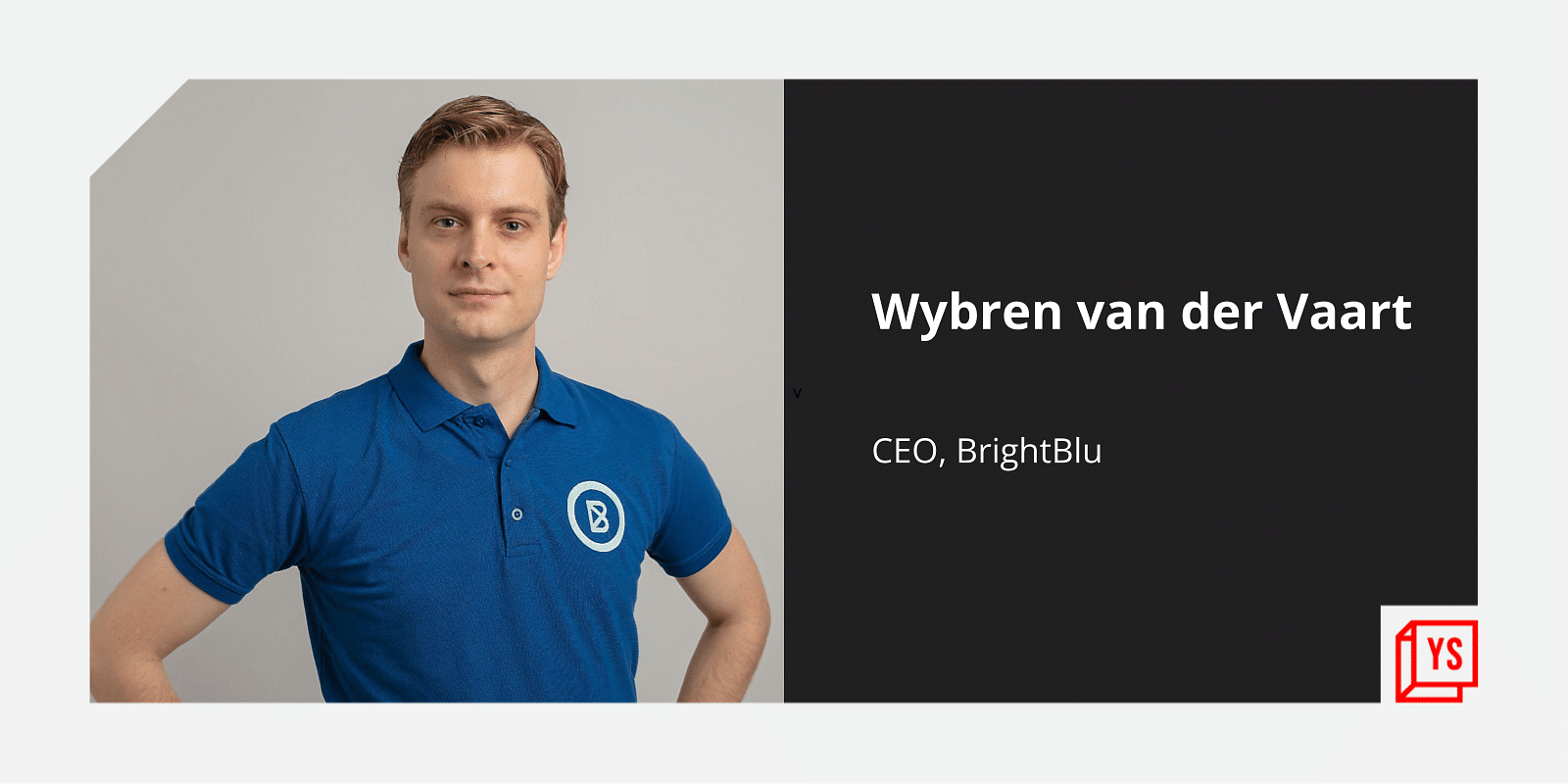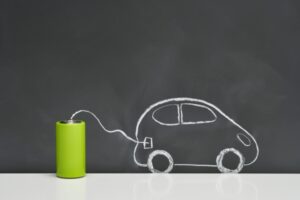India has set an ambitious target to become a 100 percent electric-vehicle nation by 2030, but a major challenge for the EV ecosystem at present is the charging infrastructure. Lack of charging facilities is one of the main reason Indian consumers are not opting for electric vehicles.
Redefining the electric vehicle (EV) charging experience is , which was founded by Wybren van der Vaart, Santoshram Somasundaram, Saket Anandakrishnan, and Yash Chitalia in 2019. The Mumbai-based startup aims to convert any public or private parking spot into a charging station.
BrightBlu has come up with a solution to charge electric vehicles at home, offices, as well as public locations like shopping malls, hotels, and restaurants.
As of now, the startup has sold close to 1,000 chargers to some of its clients like OEMs, resellers, and charge point operators.
The BrightBlu team
The product
BrightBlu makes alternating current (AC) wall boxes to charge EVs, which can be installed at homes, offices, and at locations like shopping malls, hotels, and restaurants. The startup claims it can turn any parking area into a charging spot.
The startup has developed a few proprietary technologies that will prevent overloading of local grid or connection and balance the available power on a certain connection over multiple charge.
Known as Dynamic Power Management, it works when a charger that is installed in a building communicates with the local grid/connection in real time to understand what the available power is at any given time and the charger adjusts power up or down accordingly. This is important to prevent overloading of the connection when, for example, someone in a household runs three ACs and their washing machine at the same time, potentially blowing fuses if the EV charging is done at the same time.
The startup has also developed technology to prevent expensive grid upgrades. In certain locations, to install multiple chargers, the grid connection is not sufficient–rather than an expensive grid upgrade, the available power can be shared according to the demand over multiple chargers, saving cost.
“Having worked in the European market as well as having shareholders who have been operating at the leading edge of the charge market and technology, we were able to develop the next generation of charging technologies, which involve vehicle to grid integration, bidirectional charging, and dynamic load management,” says Wybren, who previously founded Asia Electric, that offered intelligent EV charging solutions.
The solution works on IEC 62196-2 protocol, also called type-2 and mode 3, where type 2 stands for the type of plug and mode 3 stands for the communications protocol between the vehicle and the charger. This is used mainly in Europe and has been adopted in India.
The hardware also has a printed circuit board, called the charge control unit. It is an IoT device which is a smart card with a charger that takes care of the communication with the vehicle, the grid, and the backend.
This unit is manufactured in India and less than 5 percent of the raw materials are sourced from China, whereas the rest are sourced within the country.
Building a global business from India
Apart from the technology, BrightBlu’s product is being engineered and made in India, which allows the company to use the price advantage.
The startup has three varieties of chargers–a 7w charger, which is priced at Rs 49,000, and the 11w and 22w charger costs Rs 56,000.
“Our pricing is less compared to a company that has AC chargers manufactured in China and are routed to India via Europe as they pay import duties and shipping costs. The fact that we are on par in terms of quality and are more flexible, as we own the technology; can adapt where we need to; and are cheaper, sets us apart,” says Wybren.
The startup competes with large companies like ABB India, Delta Electronics, and Mass-Tech to name a few.
“In terms of accelerating the transition to electric vehicles and electric mobility, we think India is in the right place. This really excites us in building this company to create impact globally at scale. Moreover, building a global business out of India is an exciting proposition that drives us to set up this company,” says Wybren.
But the company is facing a few challenges as well, says Wybren.
The first is having to create the technology from scratch, which he says is difficult than sourcing components. The next biggest challenge has been building hardware in a software heavy ecosystem. India is known for its software development and it has a strong environment. But when it comes to hardware, Wybren says the country does not have a strong ecosystem, and competing on a global level becomes an issue if it lacks quality.
“I think a challenge also means creating opportunities, and if you create that in India for yourself, you are really in a strong position. This is why we’re betting on it, but it definitely has been one of the biggest challenges so far,” adds Wybren.
BrightBlu’s product
The market and business
According to ICRA Research, the EV penetration in India is set to increase over the next five years, especially in the electric two-wheeler, three-wheeler, and e-bus segments.
The agency stated that in order to achieve healthy EV penetration, the expansion of charging infrastructure will play a critical role.
At present, there are less than 2,000 public charging stations in India, and is mostly concentrated in a few states, primarily urban areas. The country is looking to add over 48,000 chargers in the next three to four years with an investment of Rs 14,000 crore.
“It is a big market and we believe that electric vehicles are more pleasant to drive. With the costs becoming cheaper, we believe that EV revolution will take place by 2030 for the simple reason that cars will become cheaper and people want to drive an electric vehicle,” says Wybren.
According to the co-founders, about 80 percent of BrightBlu’s revenue comes from India, while Europe contributes around 20 percent.
Some of its investors include Sytse Zuidema, former CEO of NewMotion; Jelle Vastert, former global head of charging at Tesla, and E156 Ventures BV, which invested $200,000 in BrightBlu last year.
The startup also raised $1.6 million from Dutch clean energy company Koolen Industries this year.
On an operational level, the startup claims to be having positive margins by selling the chargers, but overall, it says it will achieve profitability in the next two years.
Plans ahead
BrightBlu plans to set up a research and development hub in Pune this year and also plans to make Pune its headquarters. It is setting up an office in the Netherlands as well to aid with sales in the European market.
With a team of five people, including the founders, the company expects to add another 10 to 15 people to the team after expanding its operations to Pune.







![Read more about the article [Funding alert] AntWak raises seed round led by Matrix Partners India](https://blog.digitalsevaa.com/wp-content/uploads/2021/03/Funding-1587044486257-300x150.png)


